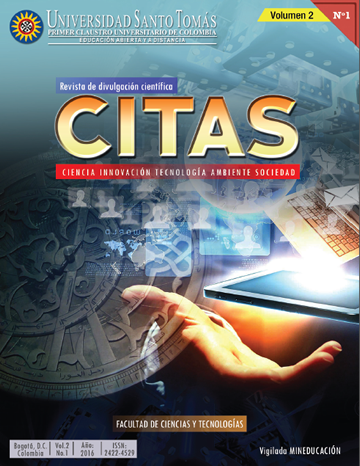Sistemas flexibles de manufactura para entornos académicos como respuesta al desarrollo tecnológico de las pymes en Colombia
Flexible manufacturing systems for academic environments as a response to the technological development of SMEs in Colombia
Abstract (en)
Taking as epicenter the Laboratory of CNC (Control Numeric Computerized) and Robotics of the University District Francisco José of Caldas – Faculty Technological, it developed the best alternative for the education in manufacture highly industrialized low environments real of work through of the diagnosis of the main components technological of a FMS (System Flexible of Manufacturing), the selection of the main stations of work of a factory and the relation of this environment of work with the man inside of a area determined, with the purpose of prepare professionals that give solutions to the questions, variabilities and challenges that are presented in the processes productive of the industries emerging from a focus investigatory, innovative, competitive, friendly and profitable for all the actors of the chain of production and of consumption.
Abstract (es)
References
Cámara de Comercio de Bogotá, CCB. (2007). Perfil económico y social localidad Ciudad Bolívar. Recuperado de: http://bibliotecadigital.ccb.org.co/bitstream/handle/11520/2894/2228_ p er f i l _ e c onom ic o _ c iud ad _ b ol iv a r. pdf?sequence=1&isAllowed=y
García, R. (2005). Estudio del trabajo. Ingeniería de métodos y medición del trabajo. 2da Ed. México: McGraw Hill.
Konz, S. (1991). Diseño de instalaciones industriales. México: Limusa.
Miller, R. & Walker, T. (1990). FMS/CIM System Integration Handbook, Liburn, GA.: The Fairman Press.
Niebel, B. (2004). Ingeniería Industrial, métodos, estándares y diseños del trabajo. 12 da Ed. México: Alfaomega.
Zambrano, G., Parra, C., Manrique, M., Bustacara, C. (2007). Estación de control de calidad por visión artificial para un centro de manufactura integrada por computador (CIM). Bogotá: Universidad Pontificia Javeriana.
How to Cite
License
The authors sign a transfer of rights so that Universidad Santo Tomás can publish the articles under the conditions described below. The authors, readers and other users are free to share, copy, distribute, perform and publicly communicate the work under the following conditions:
-
Attribution — You must give appropriate credit, provide a link to the license, and indicate if changes were made. You may do so in any reasonable manner, but not in any way that suggests the licensor endorses you or your use.
-
NonCommercial — You may not use the material for commercial purposes.
-
ShareAlike — If you remix, transform, or build upon the material, you must distribute your contributions under the same license as the original.
No additional restrictions — You may not apply legal terms or technological measures that legally restrict others from doing anything the license permits.
CITAS is licensed under Creative Commons Attribution-NonCommercial-ShareAlike 4.0 International (CC BY-NC-SA 4.0).

Until 2019 the documents published in the magazine were under the Creative Commons Attribution-ShareAlike license (CC BY-SA), however, in order to guarantee the open and free distribution of the content published in the magazine, it was decided to change the type Commons Attribution-NonCommercial-ShareAlike 4.0 International license (CC BY-NC-SA 4.0)






